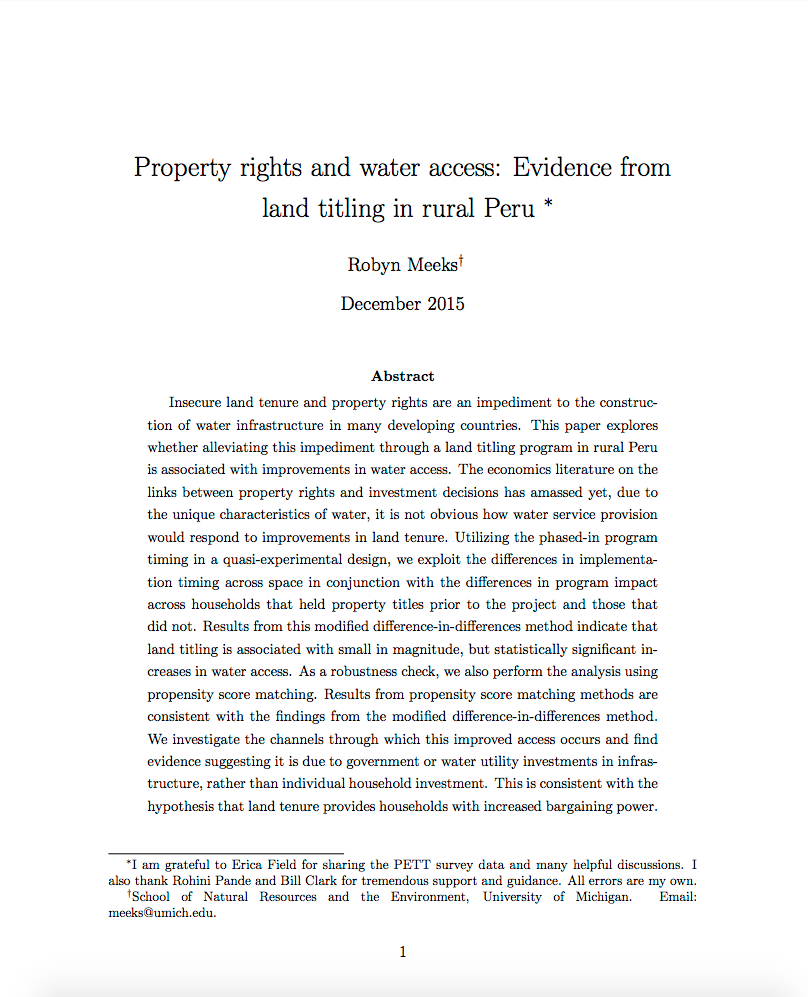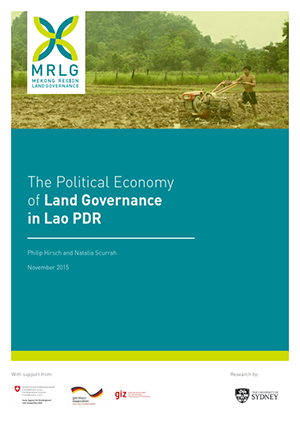Property Rights and Water Access: Evidence from Land Titling in Rural Peru
Insecure land tenure and property rights are an impediment to the construction of water infrastructure in many developing countries. This paper explores whether alleviating this impediment through a land titling program in rural Peru is associated with improvements in water access. The economics literature on the links between property rights and investment decisions has amassed yet, due to the unique characteristics of water, it is not obvious how water service provision would respond to improvements in land tenure.









